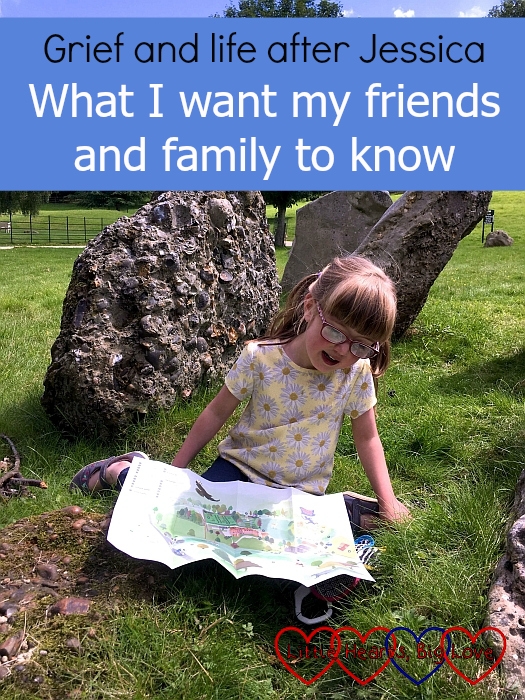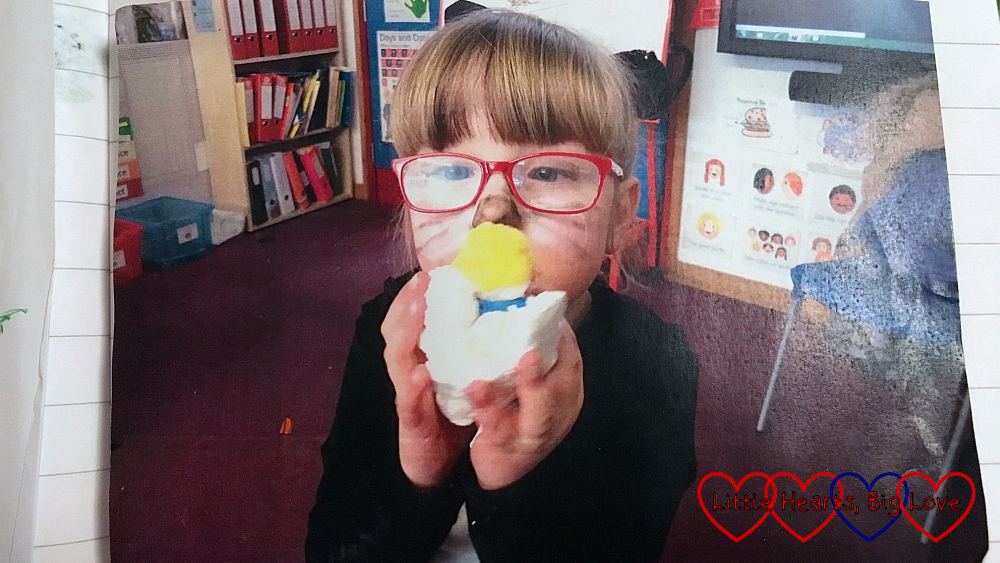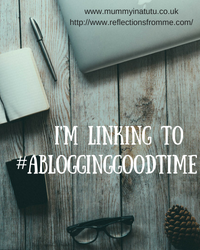Dealing with someone else’s grief is something that many people are uncomfortable with, especially when it comes to child loss. Many people don’t really know what to say, or to do. As a bereaved parent, I’ve been on the receiving end of a whole range of comments and reactions. Some of them are helpful, some are unhelpful. Some have been incredibly insensitive.
Although it is hard to deal with some of the insensitive comments, I know that they generally aren’t meant to be hurtful; they’re just thoughtless. Most people want to be helpful, but they just don’t know what, if anything, is the right thing to say, or do. Here are some of the things that I want my friends and family to know when it comes to making my grief a little easier to bear.

1) Talk about Jessica
If there is one thing that I wish people were more comfortable with, it is being able to talk about Jessica with me. Talking about Jessica does not “remind” me that she died. I never forget it. It tells me that you remember that she lived; that her life mattered; that she is still loved and remembered.
If I get a bit tearful when I talk about Jessica, it isn’t because talking about Jessica made me sad. It’s because I miss her. You didn’t remind me that I miss her – I never stop missing her. It’s just that sometimes my heart and head fill up so much with my memories that they end up spilling out of my eyes and down my cheeks. The people I love most to be around are those who still talk as easily about Jessica now as they did when she was here.
It hurts me when people look awkward when I mention Jessica’s name – or worse, change the subject. It makes me feel that talking about my daughter is taboo – and yet, why should it be? Why shouldn’t I be able to talk about her as easily as I do my two living children? Jessica is my child, she will always be my child and I will always be proud to be her mummy.
2) There is nothing you can say or do that will “fix” my grief
I know people mean well when they offer what they think are comforting platitudes. Platitudes are rarely helpful or comforting though. You can’t fix this, or make it better. All you can do is be there for me, and to be willing to walk alongside me in this grief journey. “I’m sorry,” “I’m thinking of you,” or just simply a hug is enough to let me know that you care.
3) If your sentence starts with the words “at least” it is almost certainly better left unsaid
“At least” doesn’t make the pain of losing Jessica any easier to bear. If I choose to look for a silver lining in the midst of my grief, that is for me to do. You can’t find it for me.
4) The hole in my life is Jessica-shaped
Nothing else can fill it this emptiness other than Jessica. Sophie and Thomas have their own place in my heart. They bring me joy, and comfort in their own way, but they cannot fill the empty place in my heart that belongs to their big sister. I could have a dozen children, but I would still miss Jessica every bit as much.
5) There is no time limit on my grief
I will love Jessica until the day I die. I will miss her for the rest of my life. This is not something I can, or want to, ever “get over”. Time is often more hurtful than healing. The passing of time reminds me that I am moving further and further away from life with Jessica. Every morning I wake up, and every morning Jessica is gone. There is not a day when I don’t long to see her, hold her, hear her laugh once more. Grief is now a part of who I am.
6) “How are you?” is a difficult question to answer sometimes
Trying to find words to describe how I feel can be difficult at times. My emotions these days are never unmixed. I can laugh, I can smile, I can feel happiness but the sadness is always there beneath the surface. I can go from laughing to being utterly distraught in a split second.
I have often described grief as being like a stormy sea. Some days the sea is calm or I am able to let the waves carry me along. Other days, the storm rages around me. Sometimes I can anticipate the storms but often they come with little or no warning.
If you ask me how I am though, chances are I will tell you I’m okay. Sometimes I am okay in that moment but often it’s just easier to tell you I’m okay than to open up. If I’m feeling able to be more honest, I’ll probably say I’m “struggling” or “surviving” instead. If all I do is shrug, it almost certainly means I’m barely holding my emotions together. A hug is likely to make me cry at that point but it’s still appreciated all the same.
7) Grief is lonely, and yet I will often choose solitude over company
Sometimes being on my own is easier to cope with than having to put on a brave face or deal with well-meaning but hurtful or insensitive comments from others. If I decline a social invitation, or seem aloof it doesn’t mean that I’m avoiding you or that you’ve offended me. It’s just that some days, I don’t have the energy to be sociable. Some days, it takes all my energy just to hold it all together. There are days when I want to scream and shout and cry and rant. It’s easier to let it all out when I’m alone or with one of the few people I can completely let my guard down in front of.
8) How I cope with my grief is down to me
I am carrying this grief with me as best I can. What works for me; how my grief manifests itself is not for anyone else to decide. You have no right to tell me how I should grieve. As my friends and family, your role is to simply be there and to walk alongside me. Ring theory is a concept which explains this quite well. It puts people into different circles depending on how close they are to the centre of a traumatic event. Those closest to the centre can react however they choose. The concept is simple – comfort in, dump out. Basically, this means providing help to those in circles that are smaller than your own, and only complaining to people in larger circles than yours. This article explains it a little more clearly.
9) Share the photos
I love seeing photos and videos of Jessica popping up on my timeline. If you have them, please do feel free to share them. Sometimes it means I get a “new” memory to treasure as a result.

We have been surrounded by so much love in these past eleven months and knowing that we have that love and support does help make our grief a little easier to bear. I hope that the list helps when it comes to knowing what are the “right” things to say and do.



This is really helpful to read.
I remember asking you how you were shortly after Jessica died and I felt such a fool.
That is lovely that people are sharing photos of Jessica making new memories for you.
Thinking of you as always x
Thank you for your honesty and courage once more. You explain grief beautifully and it is important to remember the pointers you’ve highlighted. Sending you all so much love and the five of you remain in my prayers and thoughts xxx
Thank you for writing this. I am definitely guilty of not knowing what to say, I can’t even begin to imagine what you’re going through and I do think about you and Jessica a lot. Although I never met Jessica, her joyful personality and your love for her come across so clearly on your blog.
Nat.x
A beautiful and honest post Louise, I often feel as though I don’t know what to say, or I’m scared I will say the wrong thing. It’s also difficult because everyone deals with things differently. I know when my Mum died the worst thing anyone could say to me was that time was a great healer. It does get better with time, but when you are feeling raw, you don’t want it to get better because the pain is all you have to hold on to at that time. Eventually the raw pain becomes gentle memories, but it doesn’t get better. I will always remember Jessica, and never be worried about speaking her name, it’s far too precious. xx
Thank you so much for sharing such an honest post with us for a blogging good time, it is important to share posts like the one you have written here, and I am sure it was hard to write without breaking down, but what this post does so beautifully is help people who know someone who has had a precious child pass away, it helps guide them and give them an idea of how someone they care about may be feeling too. You are right though grief is our own and no one will ever truly know your pain as everyone deals with grief in their own way and their own time, there is no time line or wrong or right way to feel. I think for your family, close friends and extended friendships this will be such a help, and hopefully make people you know understand you and know better how to support you. I have followed your blog and instagram for quite some time now and when Jessica passed although I never got to meet her, nor have I had the pleasure of meeting you, I was so saddened and she is often on my mind so I love when you share her photos and I see her smiles, it is so obvious how much her life brought light to this world and always will. You are her mum and that will never change, I think it is wonderful that you keep sharing her wth all of us. Sending so much love your way xx
Thank you for sharing this. You are absolutely right, your friends and family need some guidance on how you would like to be treated. These well-written suggestions can be followed by anyone who knows someone who has lost a child.
Thanks for sharing. This is helpful. Angela xx I lost a family member last year and although some people have dealt with it differently to me, I need so much more time and to be free to grieve in my own way..not how others think I should. I hope people can use this post to be a better support to you.
Thanks for sharing. It can be so hard to know what to say so thank you for this. Even though you’re hurting I know so many people appreciate you sharing your thoughts and we’re all sending you love.
#ablogginggoodtime
This is a lovely post – I have been thinking of you knowing it has been a year since you lost Jessica and our trip to Chessington…also helpful as it is the anniversary of the death of a friend’s baby & I have been wondering whether to mention it or not – going to message her now!x #ablogginggoodtime